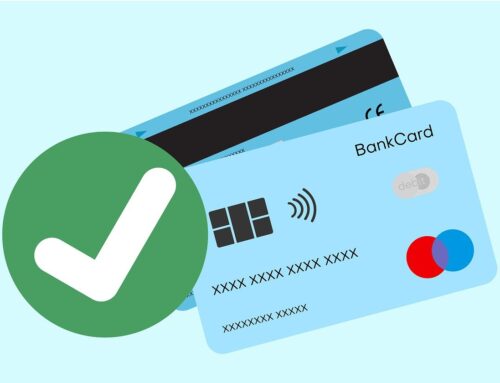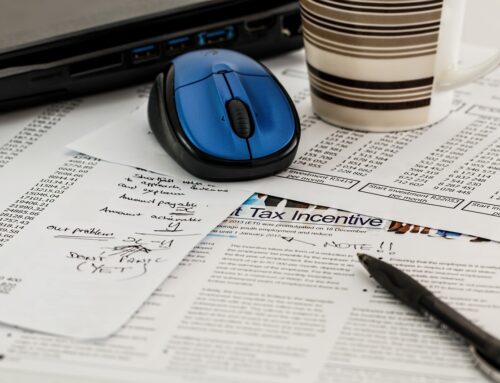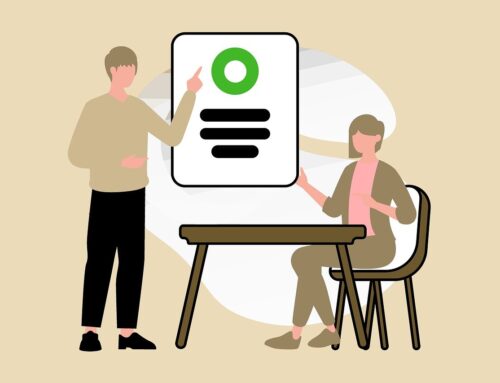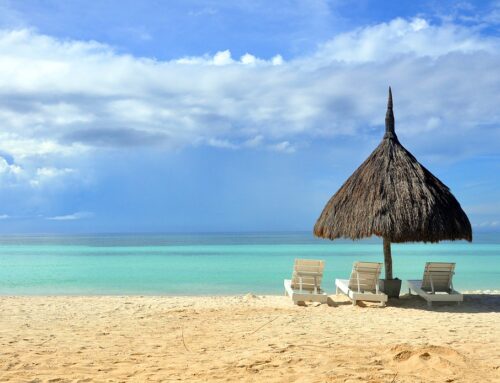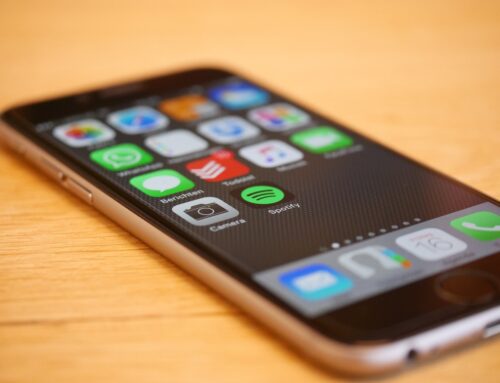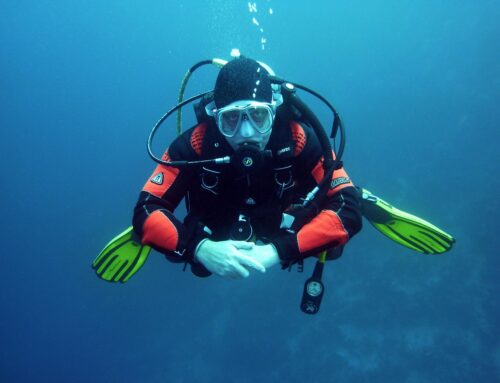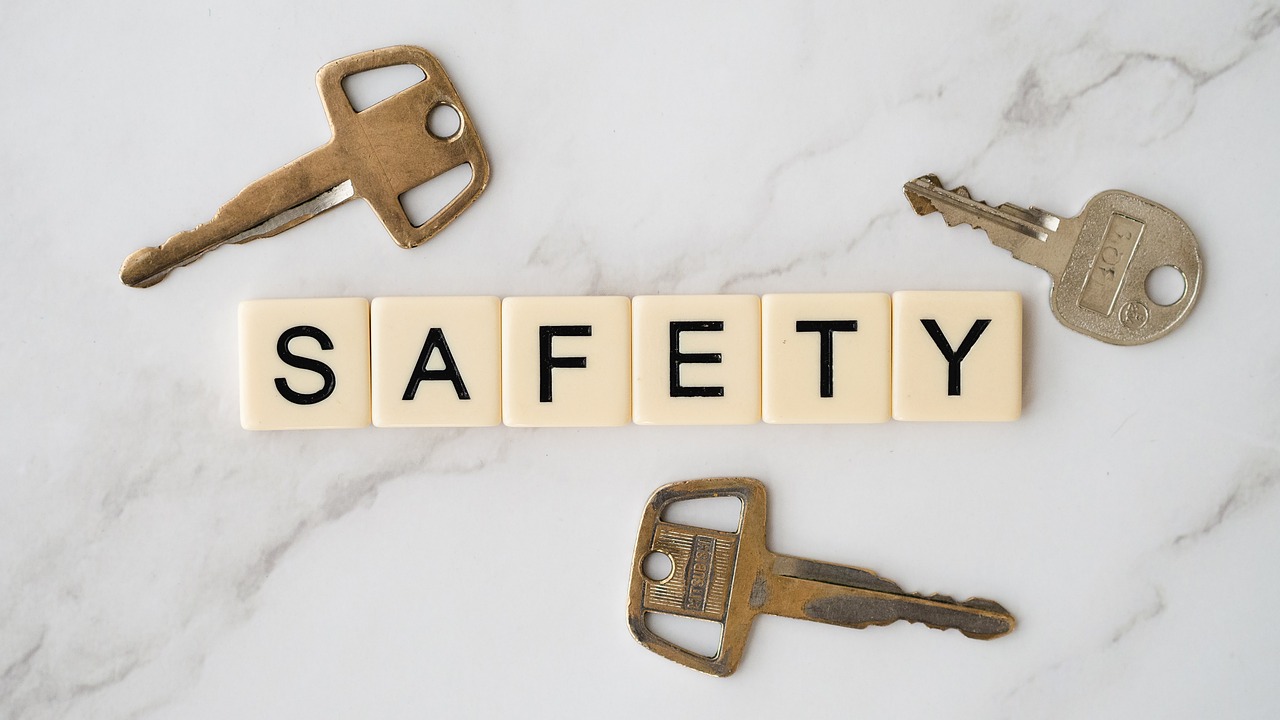
Safety and Security in the Philippines for Expats
With its gorgeous beaches, lively culture, and famously friendly locals, the Philippines draws in expats from around the world. But naturally, safety and security are top of mind for anyone considering a move. The truth? While no place is perfect, with the right precautions, the Philippines can be a safe and fulfilling place to live.
This guide will walk you through key safety tips and help you feel confident about your new life abroad.
Everyday Safety: Simple Steps That Make a Big Difference
Keeping yourself and your belongings safe often comes down to daily habits. Here are smart, low-stress ways to protect yourself in the Philippines:
Stay Smart at Night
-
Avoid walking alone after dark, especially if you’ve been drinking.
-
If you go out at night, stick to well-lit, populated areas and use ride-hailing apps like Grab for a safer trip home.
-
Let a friend know where you’re going and when you expect to return.
Keep Valuables Discreet
-
Flashy jewelry or large amounts of cash can draw the wrong kind of attention.
-
Stick to simple accessories and only carry what you need for the day.
-
Consider using a secure money pouch or belt when out and about.
Use ATMs with Caution
-
Choose ATMs inside malls, banks, or other well-lit, secure locations.
-
Avoid using machines late at night or in isolated spots.
-
Shield your PIN and stay aware of anyone nearby.
Watch Your Stuff in Public
-
In busy places like markets or public transport, keep your belongings close.
-
Crossbody bags with zippers are ideal. Never hang your bag on the back of a chair or leave it unattended.
-
Always know where your phone and wallet are — especially in crowds.
Secure Your Home Base
-
Install strong locks and good lighting around entry points.
-
Consider adding a peephole and building a relationship with your neighbors or building security staff.
-
If renting, choose properties in well-established neighborhoods with decent security measures.
Being cautious doesn’t mean being fearful — it means being prepared. Trust your instincts and avoid situations that feel off.
Staying Legal on the Road: Driving in the Philippines
Driving in the Philippines can be a great way to explore the islands, but it’s not without its challenges. From unpredictable traffic to different road rules, it’s important to be informed — especially with how accidents are handled.
Know About the “Presumption of Fault”
In the Philippines, there’s a concept called presumption of fault, which means that in an accident, the driver who seems to have caused the incident may be automatically considered responsible — at least initially. This assumption can make things tricky, especially for foreigners.
While it’s possible to challenge the presumption with evidence, being a foreigner can bring added scrutiny. Locals might assume you’re unfamiliar with local driving customs, which can work against you in a dispute.
Drive Legally
-
Short-term stay? You can use your valid foreign driver’s license for up to 90 days after arrival.
-
Long-term stay? Convert your license to a Philippine driver’s license through the Land Transportation Office (LTO).
-
Always renew your license on time and clear any outstanding fines to avoid legal headaches.
Drive Defensively
-
Expect the unexpected — motorbikes weaving through traffic, pedestrians crossing anywhere, and minimal use of signals.
-
Stick to speed limits, keep your distance, and always stay alert.
-
Learn local signs and rules — not everything will be what you’re used to back home.
Always Have the Right Documents
When driving, always carry:
-
Your driver’s license (local or foreign, depending on your situation)
-
Car registration (OR/CR)
-
Proof of insurance
Having your documents on hand can help smooth over minor issues and keep you protected if something goes wrong.
Final Word: Stay Safe, Stay Smart
Like anywhere, living safely in the Philippines means staying aware and being prepared. Learn the local laws, make smart daily choices, and stay connected with others in your community. With the right mindset, you’ll find the Philippines not just safe — but incredibly rewarding.
What to Do After an Accident in the Philippines
Even the most careful drivers can find themselves in an accident. If it happens, staying calm and knowing what to do next can make a huge difference. Here’s how to protect yourself legally and get help quickly:
1. Stay Calm and Check for Injuries
Take a deep breath and assess the situation. If anyone is hurt, call emergency services right away:
-
Emergency hotline in the Philippines: 911
-
Stay with your vehicle if it’s safe, and make sure you’re visible to other drivers.
2. Don’t Admit Fault
It might be tempting to apologize, but avoid admitting fault at the scene—even casually. Instead:
-
Exchange information with the other driver (name, contact details, insurance info, vehicle registration).
-
Avoid discussing the cause of the accident until insurance or legal counsel is involved.
3. Notify Your Insurance Provider
Contact your insurance company as soon as you can and explain what happened. They’ll guide you on what documents to submit and whether an adjuster needs to inspect the vehicle.
4. Seek Legal Help if Needed
If the situation escalates or you’re facing legal questions, consider hiring a local attorney who specializes in traffic law. Having legal guidance can help protect your rights—especially with laws like the “presumption of fault” in place.
Staying Safe Online: Digital Security Tips for Expats in the Philippines
While enjoying life in the Philippines, don’t forget to protect your digital life too. The online world here is active and growing fast—but it’s also full of the same risks you’d find anywhere else. Here’s how to stay secure:
Strong Passwords and Two-Factor Authentication (2FA)
Use strong, unique passwords for all your accounts—avoid reusing the same one across sites. Add 2FA whenever possible to keep your accounts protected with an extra verification step, such as a code sent to your phone.
Keep Software Updated
Outdated apps and operating systems can be easy targets for hackers. Make it a habit to update:
-
Your phone and computer’s operating system
-
Browsers like Chrome or Firefox
-
Apps, especially financial or messaging ones
Watch Out for Scams and Phishing Emails
Be extra cautious with unexpected emails that:
-
Ask you to click a suspicious link
-
Pretend to be from your bank or credit card company
-
Ask for personal or financial info
Always check the sender’s email address and never open attachments from unknown sources.
Use Caution with Public Wi-Fi
Free Wi-Fi is everywhere, from malls to coffee shops—but it’s not always safe. Avoid logging into sensitive accounts or doing online banking on public Wi-Fi. If you must use it, turn on a VPN to encrypt your connection.
Install Antivirus and Anti-Malware Software
Use reliable antivirus software on your devices and keep it updated. It can protect you from malware, spyware, and viruses that might try to steal your data or corrupt your system.
Understand Your Rights: Data Privacy in the Philippines
The Data Privacy Act of 2012 protects your personal data in the Philippines. Be mindful of what you share online:
-
Read privacy policies before using apps or services
-
Only grant permissions that are necessary
-
Avoid oversharing personal info on social media
Back Up Your Important Files
Protect yourself from loss or cyberattacks by backing up your data:
-
Use an external hard drive or
-
Sign up for a secure cloud storage service
Backing up ensures you won’t lose your photos, work, or important documents if something goes wrong
-
Safeguarding Your Health: Why Staying Away from Drugs Matters in the Philippines
The Philippines offers a vibrant culture, stunning scenery, and a warm welcome—but staying safe and healthy is crucial for a fulfilling expat experience. One of the biggest ways to protect yourself is by steering clear of illegal drugs. Here’s why it matters:
The Dangers of Drug Use
-
Health Risks: Drug use can lead to serious physical and mental health problems, including addiction, organ damage, and long-term mental health issues.
-
Strict Laws: The Philippines has tough anti-drug laws. Even small possession can lead to arrest, heavy fines, imprisonment, or deportation.
-
Safety Concerns: Drug use can make you more vulnerable to theft, violence, and unsafe environments.
Healthy Alternatives for Fun and Relaxation
Instead of taking risks, embrace the endless safe activities the Philippines offers:
-
Explore Nature: Hike breathtaking mountains, snorkel coral reefs, or relax on world-class beaches.
-
Experience the Culture: Attend colorful festivals, try local dishes, and learn Filipino crafts.
-
Connect with the Community: Volunteer your time, join clubs, or pick up a new hobby like scuba diving or photography.
Seeking Help if Needed
If you or someone you know struggles with substance use, help is available:
-
Dangerous Drugs Board (DDB): https://ddb.gov.ph/
-
Philippine National Police (PNP): https://pnp.gov.ph/
-
Mental Health Hotlines: Confidential support is available for addiction and mental health concerns.
Choosing a healthy lifestyle ensures you get the most out of your time in the Philippines while staying safe and secure.
Shielding Your Privacy: How to Protect Your Personal Information
In a country as friendly and social as the Philippines, it’s easy to open up. But protecting your personal information is still important for your security. Here’s why:
Why Privacy Matters
-
Avoid Identity Theft: Sharing details like your passport number, social security number, or bank info can expose you to fraud or financial loss.
-
Prevent Scams: Scammers often use personal information to craft convincing phishing scams or manipulate you into financial traps.
-
Stay Safe: Sharing too much about your daily habits, address, or travel plans can open you up to unnecessary risks.
Navigating Online Relationships: Staying Safe and Building Trust
The Philippines has a strong online culture, and many expats connect through dating sites or social platforms. But it’s important to be cautious:
Be Aware of the Risks
-
Economic Challenges: Some individuals may misrepresent themselves to seek financial support.
-
Scam Warning Signs: Fast-moving emotional connections and early requests for money are major red flags.
Protect Yourself
-
Take Your Time: Build trust slowly and avoid rushing into anything emotional or financial.
-
Use Video Calls: Confirm someone’s identity early in the relationship.
-
Listen to Your Instincts: If something feels off, step back.
Finding Genuine Connections
-
Use Trusted Platforms: Stick to reputable dating or expat community sites.
-
Share Interests: Focus on connections based on shared hobbies or passions.
-
Keep Family or Friends Informed: Let someone you trust know if you’re building a close online relationship.
Staying cautious doesn’t mean you can’t find meaningful relationships—it just ensures they’re built on trust and honesty.
Navigating Emergencies: Key Numbers Every Expat Should Know
Being prepared can make all the difference during an emergency. While the Philippines is developing a centralized emergency system, it’s important to know specific numbers for different needs.
National and Local Emergency Numbers
-
National Emergency Hotline: 911 (available in most areas)
-
Police Assistance: 117
-
Fire Emergencies: 118 (Bureau of Fire Protection)
-
Maritime Emergencies: 1625 (Philippine Coast Guard)
Find Local Help
When you arrive:
-
Ask Around: Get the name and number of your local police station and barangay (village) office.
-
Online Search: Look for local emergency directories online for your area (ex: “Barangay directory Quezon City”).
Tips for Emergency Preparedness
-
Save Numbers: Program essential contacts into your phone and keep a hard copy backup.
-
Use Emergency Apps: Some local government units offer free emergency alert apps.
-
Stay Calm: In an emergency, move to a safe place, call the right agency, and speak clearly about what happened and where you are.
-

